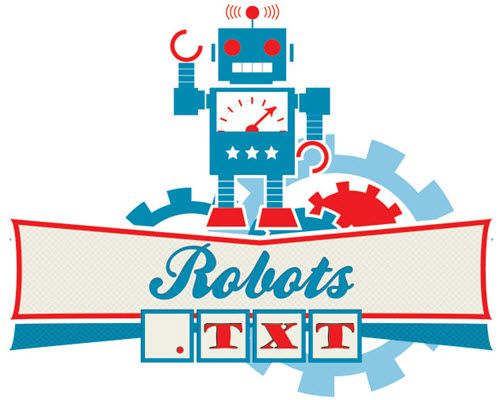In the fast-paced, ever-evolving world of data science, staying relevant is more critical than ever. With research showing that 60% of data scientists earn certifications before the age of 30, many aspiring professionals may feel pressured to pursue a similar path to stay competitive. But what does it mean to be “certified”? And is certification genuinely necessary to excel in the field? In this comprehensive guide, we will delve into the significance of data science certification, what they mean for your career, and whether you might be falling behind by not having one.
Why Are So Many Data Scientists Certified by 30?
Data science is a field characterized by rapid growth and innovation. This dynamism creates a high demand for professionals with specialized skills, which many employers recognize through certifications. Data science certifications provide a structured way for individuals to demonstrate specific expertise in tools, programming languages, machine learning models, and big data management.
Certifications like those in data science or best information systems certifications indicate a recognized standard of knowledge. Studies reveal that around 60% of data scientists secure certification by their 30s because it gives them a competitive advantage, allowing them to secure higher-paying jobs faster. Many young professionals now pursue these certifications while they are still in school or as soon as they start their careers. It sets them apart in an increasingly crowded field, where recruiters often look for proven expertise.
Does Certification Guarantee Success in Data Science?
While certifications can bolster a résumé, they are not a direct ticket to success. The primary value of a certification lies in what it represents—verified knowledge in essential data science skills. However, certifications cannot replace practical experience, a solid educational foundation, or the capacity to think analytically and adapt to new data challenges.
According to a survey by Forbes, only 40% of data scientists felt that certifications alone were enough to secure their positions, with the remaining 60% citing experience and continuous learning as more critical factors. Certifications can help open doors, but long-term success relies on developing real-world problem-solving skills and staying up-to-date with industry trends.
Top Data Science Certifications to Consider
If you’re considering certification, knowing which ones can add the most value to your career is essential. Some of the best information systems certifications for data science professionals include:
- Google Professional Data Engineer: Designed to assess and validate the skills of data engineers, particularly in cloud environments.
- Certified Analytics Professional (CAP): A certification that focuses on end-to-end data analytics, covering topics from business problem framing to data mining.
- AWS Certified Data Analytics – Specialty: Suitable for those looking to specialize in data engineering and analytics on the Amazon Web Services platform.
These certifications are widely recognized and can provide a solid foundation for anyone looking to build or advance a career in data science.
How to Decide If You Need a Certification in Data Science
The decision to pursue certification depends on your current level of experience, education, and career goals. For recent graduates or career changers, certifications can demonstrate foundational knowledge, especially if they lack formal experience. On the other hand, experienced data professionals may find that they only need to upskill or certify specific tools they use regularly.
Evaluate your skill gaps and professional goals, then determine if certification aligns with them. Many data science certifications come with costs ranging from $300 to $2,000, so it’s worth assessing whether the investment will bring a positive return on your career goals.
The Role of Certifications in Salary and Job Opportunities
Certifications often correlate with higher salaries in data science and related fields. For instance, a study by the Institute of Electrical and Electronics Engineers (IEEE) found that certified data scientists could earn up to 20% more than their non-certified peers. Additionally, certified professionals report receiving more job offers, and many experience quicker career advancement.
However, salary increases vary depending on the certification type, level of expertise, and the job market’s demand for particular skills. To get the most value, choose a certification in a high-demand skill area or technology, such as machine learning or cloud-based analytics.
The Rising Demand for Data Science and Information System Certifications
The demand for data science skills continues to grow, and companies are seeking professionals with a verifiable skillset. Information system certifications, such as best information systems certifications and those offered by Microsoft, Cisco, or CompTIA, provide essential data management, cybersecurity, and programming knowledge. They can be especially beneficial for professionals aiming to move into data-centric or managerial roles where understanding data systems and infrastructure is essential.
Getting certified in these areas opens up various career paths in data management, IT consulting, and beyond, where technical expertise and analytical skills are paramount.
Balancing Certifications and Real-World Experience
While certifications signal theoretical knowledge, practical experience remains irreplaceable. Combining certification with experience—whether through internships, personal projects, or freelancing—creates a well-rounded profile that attracts employers. This combination shows a practical understanding of the data science lifecycle, from data collection and processing to modeling and analysis.
In many job interviews, technical assessment tests or case studies will challenge candidates to apply their knowledge practically. Certifications help with credibility, but hands-on experience helps you to stand out.
Future Trends: Are Certifications Still Valuable for Data Scientists?
With emerging technologies and a focus on AI, machine learning, and big data, certifications are adapting to these evolving demands. Data science certification programs increasingly include topics like neural networks, predictive analytics, and advanced data modeling to stay relevant.
Keeping up with future trends and updating certifications can be a smart move, especially as AI-driven tools become mainstream. For professionals looking to specialize in these areas, certifications that offer the latest in AI, cloud, and automation can help ensure their skills are aligned with future job requirements.
Steps to Start Your Data Science Certification Journey
If you’re ready to start your journey, consider the following steps:
- Assess Your Goals: Think about whether you need a general data science certification or a more specialized one, such as an information systems certification.
- Research Programs: Check for accreditation, program details, costs, and course requirements.
- Choose a Schedule: Many certification programs are flexible, allowing you to study part-time while working full-time.
- Gain Practical Knowledge: Pair your certification study with hands-on practice by working on personal projects or using open datasets.
By following these steps, you’ll be well-prepared to take on a certification program that aligns with your career aspirations.
Also Read : Same Day House Cleaning Services Near Me | Local Cleaners
Frequently Asked Questions (FAQs)
Q1: Are data science certifications necessary to get a job?
A: Not necessarily. While certifications help showcase your skills, they’re not mandatory. Real-world experience, projects, and a strong portfolio are equally valuable.
Q2: What are the best certifications for data science beginners?
A: Some beginner-friendly certifications include IBM’s Data Science Professional Certificate, Google’s Data Analytics Certificate, and the CAP certification for analytics.
Q3: How much can I expect to earn with a data science certification?
A: Certified data scientists often earn 10-20% more than non-certified professionals. However, factors like location, experience, and specific skill sets also influence salaries.
Conclusion
Earning a data science certification can boost your career, providing the technical edge needed to thrive in a competitive field. Whether you’re early in your career or looking to advance, carefully consider how a certification aligns with your goals and complements your practical experience. With the right balance of certification and hands-on skills, you’ll be well-equipped to succeed in data science.





